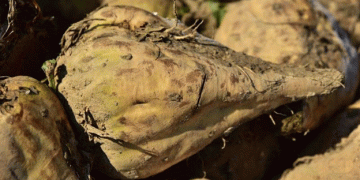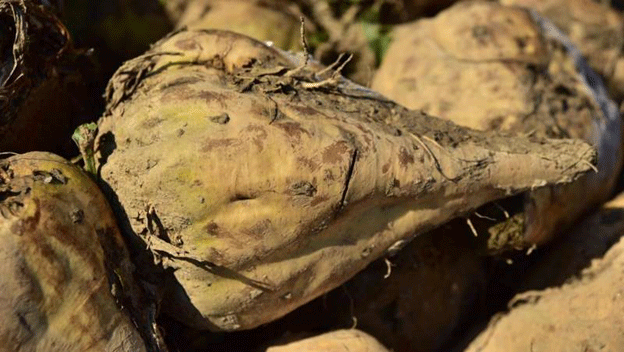Scientists have developed a groundbreaking method to repurpose sugar beet pulp waste into valuable nutritional supplements and eco-friendly plastic alternatives. This article explores the innovative enzyme-based technology that separates fibers from sugar beet pulp, their potential applications, and the broader implications for sustainable agriculture and global food production.
Breakthrough Technology
Researchers have successfully identified new enzymes capable of breaking down fibers in sugar beet pulp residue. This biologically inspired technique enables the gentle separation of different fiber components, unlocking their potential for multiple applications.
Health Benefits
The bioactive pectin fibers found in sugar beet pulp exhibit promising anti-inflammatory properties and beneficial effects on gut flora. Ongoing research aims to determine the most effective delivery methods, including capsules, food additives, and specialized nutrition.
Sustainable Materials
The cellulose component of the separated fibers presents a viable alternative to plastic, offering a sustainable solution to reduce environmental impact.
Global Impact and Future Vision
Professor Anne S. Meyer envisions a transformative shift in agricultural production, moving towards a circular bioeconomy where every part of the crop yields valuable products. This approach aligns with the growing need for resilient food systems in regions like Africa and Asia, where climate change is altering production conditions.
Research Milestones
Recent achievements include:
Discovery of new enzymes targeting sugar beet pulp fibers
Initial documentation of beneficial effects on gut health
Development of methods for fiber extraction and utilization
This pioneering research marks a significant step towards sustainable agricultural practices by valorizing waste products. The potential applications in health supplements and eco-friendly materials demonstrate the feasibility of a circular economy in agriculture, offering promising solutions for future global food security challenges.































